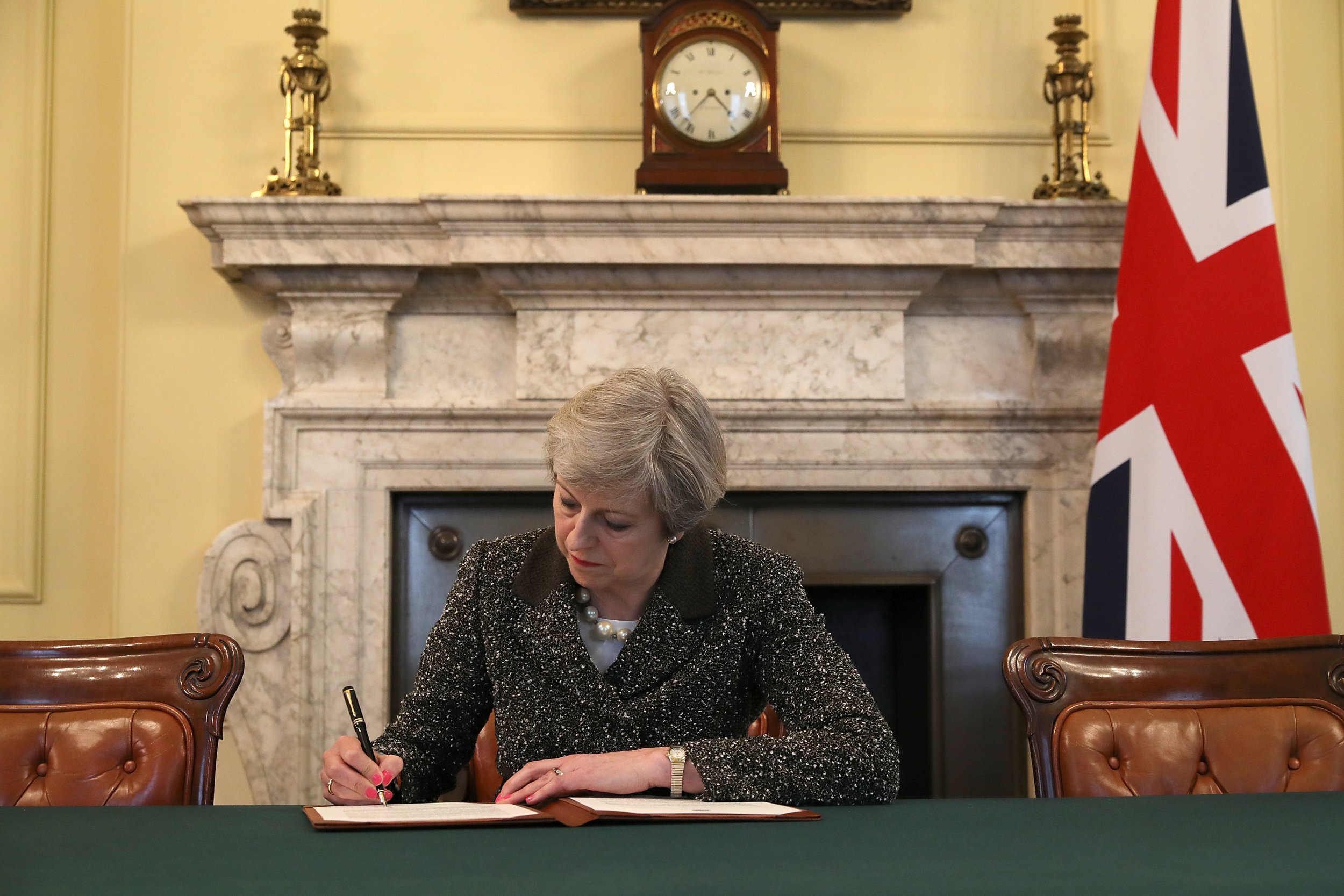
Theresa May formally began the Brexit process on Wednesday with a six-page letter to European Council President Donald Tusk. There's a lot of waffle, but there are also some clues as to how the forthcoming negotiations might pan out.
Here are five key points to take from the letter. You can read the full text here.
A "deep and special" relationship
This three-word phrase appears seven times in May's letter to describe Britain's future relationship with the bloc—it seems to have replaced "Brexit means Brexit" as the prime minister's soundbite of choice.
This may sound like a platitude. But, after the fiery nationalist rhetoric of the eight months since Britain voted for Brexit, this is a change—a sign that May is keen to conduct the negotiations in good faith and strike a compromising tone. She later stresses that "We should engage with one another constructively and respectfully, in a spirit of sincere cooperation."
Whether the heavily pro-Brexit British press supports her change in tone will be another question. The Sun 's front page ran "Dover and out" as the headline, while the Daily Mail proclaimed "Freedom" on Wednesday.
Binding the United Kingdom
The letter makes clear that the British government will be conducting negotiations with the EU on behalf of the whole U.K.—England, Scotland, Wales and Northern Ireland. But it says that "it is the expectation of the Government that the outcome of this process will be a significant increase in the decision-making power of each devolved administration."
To translate that out of politico-speak: May is saying that as powers currently held by the EU return to the U.K., she expects some of them to go to the national assemblies in Scotland, Wales and Northern Ireland, meaning each will see a boost in its power.
The extent to which she delivers on this promise may prove important in any forthcoming referendum on Scottish independence.
Let's make a deal
May has repeatedly said that "no deal" with the EU after Brexit would be "better than a bad deal"—if the EU only offers unfavorable terms on future relations, the U.K. will walk away.
The letter doesn't contradict this, but the language on this issue is noticeably less gutsy, saying "we must work hard to avoid that outcome."
It foreshadows what will likely become a theme of the talks: Britain talking up the value of its security cooperation to the EU. The U.K. leaving without a deal, May says, "would mean our cooperation in the fight against crime and terrorism would be weakened."
The Irish question
May makes sure to emphasize the importance of preventing a hard border between Ireland and Northern Ireland; the border currently has few checks or other barriers, but that could change once Northern Ireland is no longer in the EU and the Republic is.
The letter states the risks here in the strongest possible terms: "We have an important responsibility to make sure that nothing is done to jeopardize the peace process in Northern Ireland, and to continue to uphold the Belfast Agreement."
Let's get it over with
The letter confirms the government's position on the timing of talks: May wants the negotiations to cover Britain's immediate divorce agreement, as well a free trade agreement and security partnerships defining Britain's future relationship with the bloc.
Brussels doesn't want this; they think the immediate terms should be handled first, and future relations later. In the letter, May writes that while "it will be a challenge" to reach agreement on both issues, the similarities between Britain and the EU's regulatory standards will be an advantage. She says the free trade talks should prioritize how best to resolve disputes between British and European parties.
Uncommon Knowledge
Newsweek is committed to challenging conventional wisdom and finding connections in the search for common ground.
Newsweek is committed to challenging conventional wisdom and finding connections in the search for common ground.
About the writer
Josh is a staff writer covering Europe, including politics, policy, immigration and more.
To read how Newsweek uses AI as a newsroom tool, Click here.








